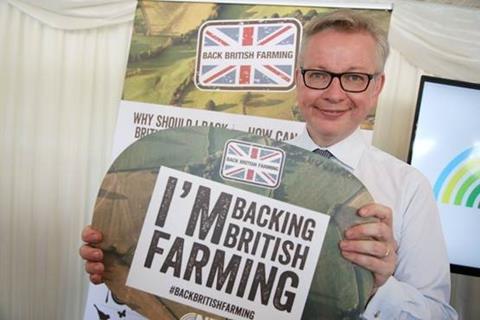Following Environment Secretary Michael Gove’s announcement that “under no circumstances” would he allow chlorinated chicken into the UK, industry experts have shared their views with Meat Management on the UK-US trade deal negotiations.

Speaking exclusively to Meat Management, the British Poultry Council’s chief executive, Richard Griffiths, reiterated that “a secure post-Brexit deal must be about Britain’s future food security and safety”.
He added: “We welcome Secretary of State Michael Gove’s statement showing confidence in our world-leading farming standards and banning chlorinated chicken as part of a UK-US trade deal. This is the sort of confidence British farmers and producers deserve from all parts of the Government.
“Our own government’s support towards British businesses will send out a message, not only to our producers and consumers, but also to other nations, that we believe in and back our standards, our food, and our businesses. And that we are proud of and cherish our Britishness!”
Hormone fed beef
Chief executive of the British Meat Processors Association, Nick Allen, added: “’With regard to hormone fed beef and a trade deal there are two key issues. Firstly, will it be accepted by consumers who have for a long time been conditioned against the concept or will the consumers’ loyalty and preference for home produced beef still prevail?
“Secondly, is it fair to the UK farming industry to allow a product in that has been produced using a production technique that is denied to them, and if the government then chooses to allow hormone fed beef production in this country, what will the implications be for trade with Europe who are still our biggest export market?”
Public health, provenance and labelling
Head of policy at the Association of Independent Meat Suppliers, Norman Bagley, noted: “The chorine in chicken and hormones in beef raises some interesting questions. In terms of meat inspection, the EFSA report highlighted the shortcomings of the EU system which relies in visual inspection which, of course, doesn't address the invisible pathogens, whereas chlorine and lactic acid washes do, so criticising US standards in terms of public health controls seems somewhat wide of the mark.
“What has defended the UK industry against cheap imports is provenance and labelling. Look at how many supermarkets have committed to 100% British of various products. These may be better arguments in defence of UK meat.”
The latest UK-US trade deal headlines
Appearing on the BBC’s Newsnight, the International Trade Secretary Liam Fox, stated that Britain would not become “the low regulation alternative that some people have suggested”, but avoided giving a clear answer on the subject of chlorinated chicken.
He said: “There is no health issue with that - the European Union has said that is perfectly safe.
“The issue lies around some of the secondary issues of animal welfare and it’s perfectly reasonable for people to raise that but it will come much further down the road.”

However, answering to Nick Robinson on the Today programme, the Environment Secretary, Michael Gove, clarified that he would not accept chlorinated chicken if he was still Defra Secretary when a UK-US deal is agreed.
He added: “I made it perfectly clear, and indeed this is something on which all members of the government are agreed, that we are not going to dilute our high animal welfare standards or our high environmental standards in pursuit of any trade deal.”
A Defra spokesperson commented: “Maintaining safety and public confidence in the food we eat is of the highest priority and any future trade deal must work for UK farmers, businesses, and consumers.
“Any new products wishing to enter the UK market must comply with our rigorous legislation and standards – we will not compromise on animal welfare and food safety.”
This story was originally published on a previous version of the Meat Management website and so there may be some missing images and formatting issues.












